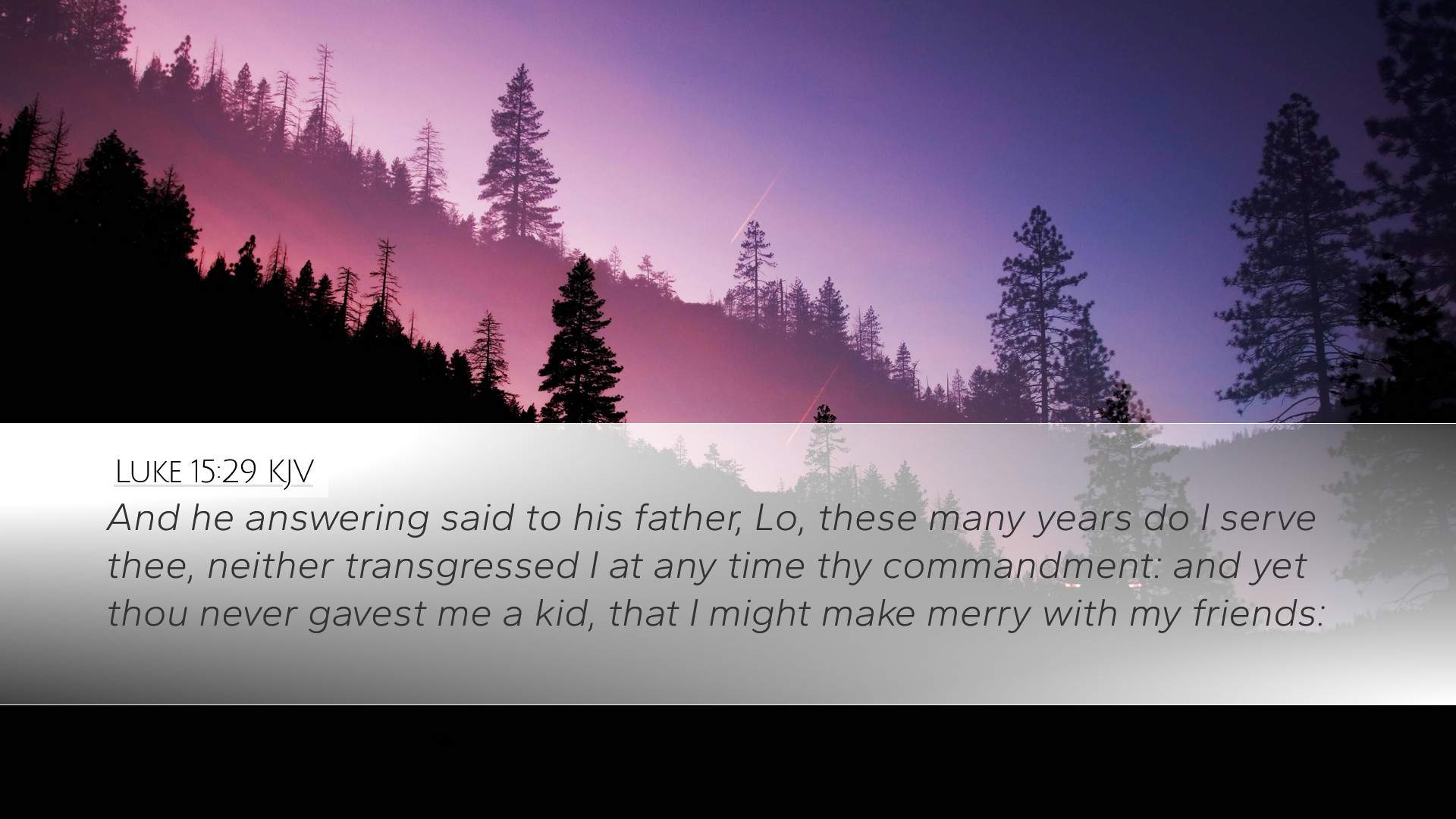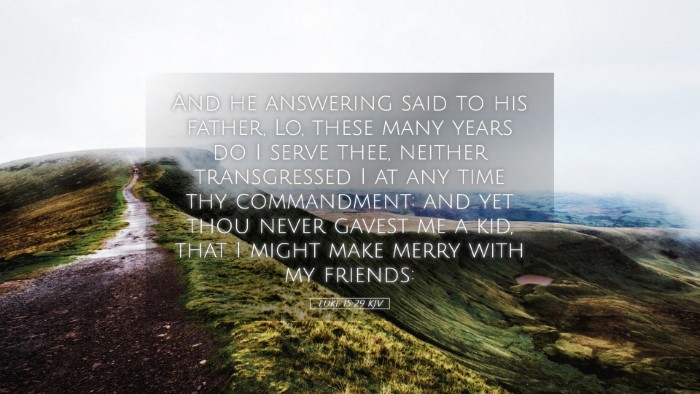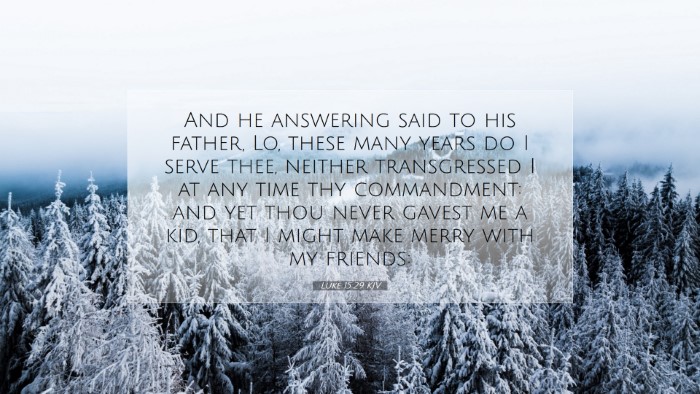Luke 15:29 Commentary
Bible Verse: Luke 15:29 - "But he answered and said to his father, ‘Lo, these many years do I serve thee, neither transgressed I at any time thy commandment: and yet thou never gave me a kid, that I might make merry with my friends.’"
Introduction
The parable of the Prodigal Son is one of the most beloved and profound teachings of Jesus. In this particular verse, we glimpse the heart of the elder brother, who embodies the attitude of self-righteousness and entitlement. This commentary synthesizes insights from various public domain sources to explore the deeper implications of this verse for believers today.
Contextual Background
Before delving into the specifics of Luke 15:29, it is essential to understand the context of this passage. Jesus shares this parable in response to the Pharisees and scribes' criticism of His association with sinners (Luke 15:1-2). The parable unfolds the dynamics of grace, forgiveness, and inclusivity within the kingdom of God. The elder brother's statements in verse 29 highlight his misperception of service and reward.
Analysis of the Verse
1. The Elder Brother's Service
“Lo, these many years do I serve thee…”
The elder brother begins with a tone of indignation and expectation. His long years of service to the father imply a sense of duty rather than devotion. As Matthew Henry notes, his attitude highlights the danger of “serving out of obligation rather than love.” This service becomes a frame for his complaint about lack of recognition.
2. The Self-Righteous Attitude
“Neither transgressed I at any time thy commandment…”
In claiming perfect compliance with his father's commands, the elder brother reveals a self-righteous heart. Albert Barnes points out that true righteousness is not merely the absence of transgression but must be accompanied by love and humility. His boast reflects a misunderstanding of the father's grace and the relational aspect of obedience.
3. Expectation of Reward
“And yet thou never gave me a kid, that I might make merry with my friends.”
The demand for a reward is striking. Adam Clarke elaborates that the elder brother expected his long service to earn him the father's favor, leading to entitlement. This mirrors a legalistic approach to faith, where deeds replace genuine relationship. There’s an inherent irony: while his brother squanders his inheritance, the elder brother's meritocracy fails to earn the celebration he craves.
The Broader Implications of Luke 15:29
1. The Nature of Grace
The elder brother's reaction contrasts with the father's abundant grace toward the returning prodigal. This point highlights that God's grace does not operate on the merit system that the elder brother espouses. Henry emphasizes that grace is fundamentally unmerited and inclusive, reaching out to all who recognize their need.
2. Attitudes in the Church
This parable provides a cautionary tale for the church today. Many can relate to the elder brother, feeling overlooked despite a lifetime of service. Barnes encourages believers to avoid comparative righteousness, reminding us that God’s kingdom is not about who has served longer or better but about the grace given freely to all who come to Him, regardless of their past.
3. The Heart of the Father
Throughout the parable, the father's heart is a profound focus. Where the elder brother sees injustice, the father exemplifies unconditional love and joy at the redemption of a lost son. Clarke notes that the father’s actions reveal the heart of God, always ready to forgive and celebrate those who repent and return.
Reflective Questions for Further Study
- In what ways might we mirror the elder brother's attitude in our own lives and ministries?
- How can we cultivate a spirit of humility and gratitude rather than entitlement in our relationship with God?
- What practical steps can we take to celebrate the grace shown to others, especially those we may feel are undeserving?
Conclusion
Luke 15:29 serves as a poignant reminder of the heart attitudes we must guard against as followers of Christ. The tension between duty and devotion, entitlement and grace, captures a common struggle within the Christian experience. This passage invites us to reflect on the depth of God's grace, the fullness of His love, and the call to celebrate not just our own faithfulness, but the redemption of others as well.


